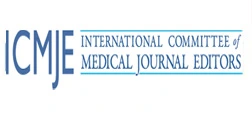Background: Lower respiratory tract infections (LRTIs) frequently require immediate empirical antibiotic therapy due to di
agnostic delays and clinical severity. Empirical regimens commonly rely on broad-spectrum agents, which can increase selec
tive pressure for antimicrobial resistance.
Author Name:
Jeuti Talukdar |
|
Journal of Antibiotics Research
Obesity and the Risk of Cognitive Decline and Dementia: Implications and Prevention Strategies
The global rise in obesity presents a significant public health challenge, with implications extending beyond metabolic disor
ders to include an increased risk of cognitive decline and dementia.
Author Name:
Auda Fares |
|
Journal of Nutrition and Health Sciences
Interpretable Deep Learning for Ovarian Cancer Subtype Classification Using Histopathology Images
Ovarian cancer is a histologically heterogeneous malignancy in which accurate subtype classification is essential for prognosis and treatment selection.
Author Name:
Mehtap Agirsoy |
|
Journal of Gynecology Research
Media Influence on Childhood Obesity in Lahore, Pakistan Affiliation
Media strongly influences children’s eating habits, promoting consumption of sugary and ultra-processed foods.
Author Name:
Ammara Waqar |
|
Journal of Obesity and Overweight
Media Influence on Childhood Obesity in Lahore, Pakistan Affiliation
Background: Lower respiratory tract infections (LRTIs) frequently require immediate empirical antibiotic therapy due to di
agnostic delays and clinical severity. Empirical regimens commonly rely on broad-spectrum agents, which can increase selec
tive pressure for antimicrobial resistance.
Author Name:
Jeuti Talukdar |
|
Media Influence on Childhood Obesity in Lahore, Pakistan Affiliation
The global rise in obesity presents a significant public health challenge, with implications extending beyond metabolic disor
ders to include an increased risk of cognitive decline and dementia.
Author Name:
Auda Fares |
|
Media Influence on Childhood Obesity in Lahore, Pakistan Affiliation
Ovarian cancer is a histologically heterogeneous malignancy in which accurate subtype classification is essential for prognosis and treatment selection.
Author Name:
Mehtap Agirsoy |
|
Media Influence on Childhood Obesity in Lahore, Pakistan Affiliation
Media strongly influences children’s eating habits, promoting consumption of sugary and ultra-processed foods.
Author Name:
Ammara Waqar |
|












































